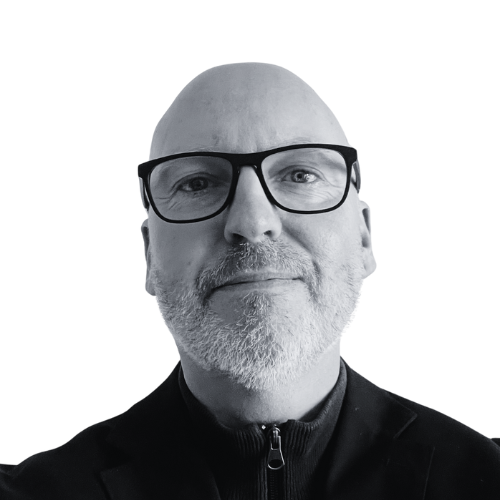Artificial Intelligence
Cyber
Future Telecoms
Materials
Quantum
Wise words and waggishness… February 2026
Reading time: 2 mins
Ascension VC principal is banishing myths and offering key advice to entrepreneurs
The UK government has made innovation the centrepiece of its growth agenda, so for venture capital companies such as Ascension VC these are potential salad days. Ministers have nailed their colours to the mast and growth will come from backing entrepreneurs, accelerating spinouts and scaling frontier technologies. That’s the hope anyway.
For Toyosi Ogedengbe, an experienced early-stage investor at Ascension, venture capital is less Champagne-fuelled unicorn hunting and more grit, graft and ruthless discipline. It is fraught with challenges and Ogedengbe is quick to puncture myths.
Venture, he insists, is an “outliers game.” He talks about the habit of venture to double down on success stories and points to well known search engines and smartphone brands to illustrate the point that most markets have one or two leaders and potentially a third-placed player. Venture, he suggests, is unapologetic in backing winners.
“That’s what VCs are looking for,” he says, “companies that can dominate their category. And that means saying ‘no’ far more often than ‘yes’.”
For founders, that has to be part of the expectation. As Ogedengbe says, “what is an entrepreneur really? An entrepreneur is literally a problem solver.” To that end Ogedengbe adds that entrepreneurs should be obsessed with solving the problem and not the product itself.
It’s a great bit of advice and feeds into Ogedengbe’s recognition of how difficult it is to set up and run a start-up business. “It may look glamorous from the outside, but in reality it’s constant graft. Fundraising alone is a full-time job,” he says. And that reality can be jarring. Many assume venture is a natural next step after a prototype or early traction, but as Ogedengbe says, “unless the market is big enough and the team has the ability to execute, it simply isn’t the right fit. Venture is not about propping up zombies, it’s about finding the one in a hundred that can genuinely scale.”
He’s equally candid about deep tech. Ascension has backed several IP-heavy start-ups, and Ogedengbe himself is about to close another.
“I like deep tech because of the intellectual property. That’s the moat. But it takes conviction, because you’re betting on zero or one. It either works or it doesn’t.”
Deep tech demands patience, capital and conviction, he says, but when it works, the payoff can redefine entire industries. He talks about some challenges over equity stakes but a bigger concern is regulation. Ogedengbe says there’s more work to be done here, to help both founders and investors. He invests in a deal every six weeks on average, and wants those investments to hit the ground running. Regulation, he suggests, can sometimes put the brakes on the speed of development in those early stages.
Something that is working well for Ogedengbe and Ascension is looking outside of the so-called ‘golden triangle’ of Oxford, Cambridge, and London. While the VC has been part of some eye-catching exits, such as the $150m sale of Credit Kudos to Apple in 2022, it has also backed fast-growing challengers in sectors from sustainability to health. Portfolio companies such as Vinehealth Digital (based in Burton on Trent) epitomise the company’s approach.
“If talent is evenly distributed, capital should be too,” says Ogedengbe. He has personally invested in start-ups from Belfast to Manchester and Liverpool, with Bristol and Cardiff firmly on his radar. “I feel a personal mandate here. People in venture don’t often look like me, and founders outside the golden triangle don’t always get attention. We need to change both.”
“Ascension, which consistently appears in Beauhurst’s list of the UK’s most active investors, has a relatively new funding vehicle called Fund III. Targeting £50m, the fund reached a £19m first close and has already made five investments across fintech, energy and health. It aims to raise the remaining £30m by September 2025 to back what Ascension calls its next ‘impact dragons’ – companies capable of delivering both meaningful change and venture-scale returns.”
“Some of our best returns have come from impact-driven companies,” says Ogendengbe. “Solving real problems and making money are not mutually exclusive.”
Ogedengbe’s honesty about the hard truths of venture is refreshing. There are no guarantees, no easy wins. Yet his conviction, that talent is spread across the UK, that impact and profit can align, and that discipline beats hype, is encouraging. His references to outliers is also enlightening. As Malcolm Gladwell once wrote, success is not a random act. It arises out of a predictable and powerful set of circumstances and opportunities. An active and engaging VC is clearly a key part of that.

Working as a technology journalist and writer since 1989, Marc has written for a wide range of titles on technology, business, education, politics and sustainability, with work appearing in The Guardian, The Register, New Statesman, Computer Weekly and many more.
Quantum
Reading time: 10 mins
Quantum
Reading time: 10 mins
Future Telecoms
Reading time: 2 mins
Quantum
Reading time: 11 mins
Robotics
Reading time: 1 mins